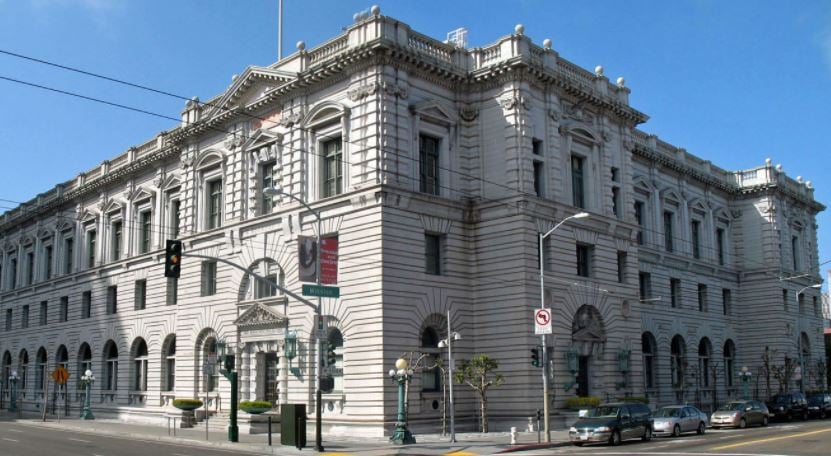SAN FRANCISCO (CN) — In a lawsuit challenging a company’s right to make money off people’s old yearbook pictures, the Ninth Circuit on Friday rejected a request to send the case to arbitration.
Lead plaintiff Meredith Callahan sued PeopleConnect Inc. in December 2020, claiming the company has been misappropriating millions of Californians’ names, likenesses, photos and other information without their consent.
PeopleConnect collects and stores vast quantities of information from yearbooks, including names and pictures, that it uses to promote its website Classmates.com. It offers a subscription membership service for $3 monthly and reprinted yearbooks for just under $100.
For the millions of Californians whose faces were featured in school yearbooks, the lawsuit claims PeopleConnect violates their right to privacy and their right to control how their photos, names and likenesses are used for business purposes.
Before the suit was filed, Callahan’s attorney did some digging to see if the company was actually making his clients’ yearbook pictures available to paying customers. To conduct his investigation, he registered for two accounts on Classmates.com, which required him to agree to the company's terms of service and privacy policy. Within those contractual terms was a provision mandating that all claims against the company be resolved through private arbitration and not through the courts. The agreement also included a waiver banning users from participating in class actions against the company.
Last year, PeopleConnect argued that because the attorney agreed to those terms, his clients’ lawsuit should be sent to private arbitration and resolved on an individual, rather than class, basis.
U.S. District Judge Edward Chen rejected that argument in a May 2021 ruling, concluding the plaintiffs could not be bound by an agreement which they hadn’t been informed of and never consented to, even if a lawyer signed it on their behalf.
In a 10-page ruling, Chen wrote that the claims asserted against PeopleConnect did not arise from the attorney’s use of the Classmates.com website. The judge added that before the suit could be filed, the lawyer had an obligation to investigate those claims, which meant he needed to sign the agreement to gain access to the website.
“The Court is troubled by PeopleConnect’s suggestion that a plaintiff’s access to a judicial forum may be cut off simply because counsel for the plaintiff fulfilled a duty under Rules 11 and 12 to investigate prior to filing suit,” Chen wrote.
On Friday, a three-judge Ninth Circuit panel upheld Chen’s decision, finding California state law does not allow a person to be bound by an agreement they never consented to, even if their lawyer consented for them.
“Plaintiffs’ counsel did not have implied actual authority or apparent authority to bind his clients to arbitration,” the panel wrote in an unpublished opinion.
Both Judge Chen and the panel cited the California Supreme Court’s 1985 opinion in Blanton v. Womancare Inc., which held that attorneys may not “impair the client’s substantial rights” without a client’s permission.
Senior U.S. Circuit Judge J. Clifford Wallace, a Richard Nixon appointee, and Circuit Judges Sidney Thomas and M. Margaret McKeown, both Bill Clinton appointees, sat on the panel.
This past November, Judge Chen advanced the bulk of the lawsuit against PeopleConnect. He concluded that because the plaintiffs were never paid for the use of their yearbook photos and because those pictures appear to have advertising value for PeopleConnect, the class action must proceed.
A federal judge dismissed a similar case against genealogy giant Ancestry.com last year, finding that yearbook pictures are not entitled to special protections.
In an emailed statement Friday, PeopleConnect attorney Wade Thomson of Jenner and Block said the Ninth Circuit opinion has not dampened his client’s faith in its ability to eventually defeat the litigation.
“While PeopleConnect disagrees with the ruling, we of course respect it,” Thomson said. “PeopleConnect remains confident it will prevail in this lawsuit and the related actions.”
PeopleConnect is fighting similar federal lawsuits in Seattle, Chicago and San Diego.
Attorney Michael Ram, who represents the proposed plaintiff class in San Francisco, did not return an email requesting comment by press time.
Subscribe to Closing Arguments
Sign up for new weekly newsletter Closing Arguments to get the latest about ongoing trials, major litigation and hot cases and rulings in courthouses around the U.S. and the world.









